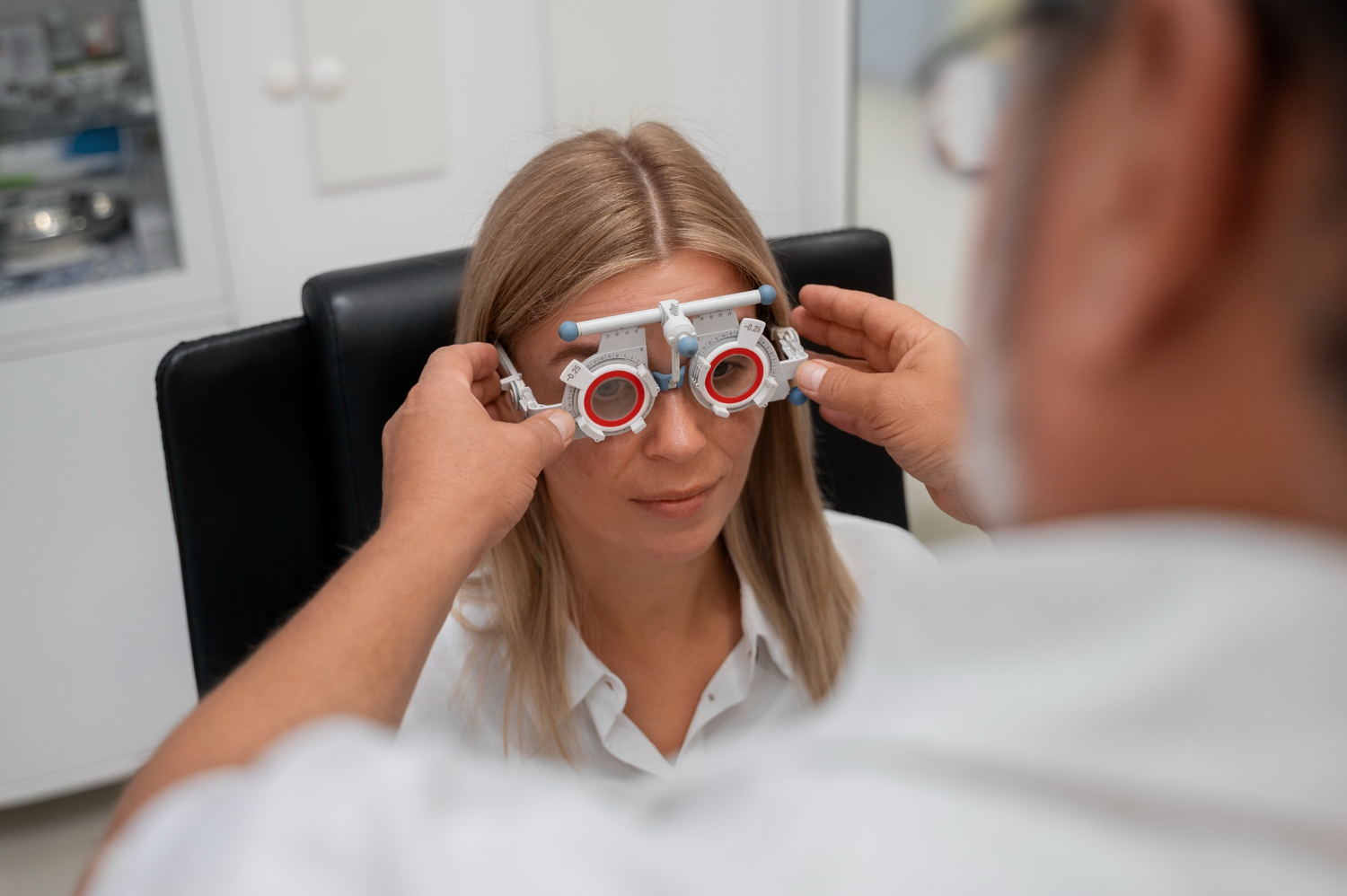There is visible light everywhere, though it’s more complicated than you think. For instance, exposing yourself to sunlight outdoors, flipping on indoor lighting fixtures, scrolling through your phone or other digital devices – these things all have a variety of visible and invisible light rays that have a range of effects to your eyes and brain.
Sunlight contains red, orange, yellow, green, blue light rays and invisible ultraviolet rays that are widely known to be harmful to the skin. The visible colours, however, have varying shades that change depending on the energy and wavelength of the rays or electromagnetic radiation. To that end, we’re here to focus on blue light and how it makes an impact on you.
What is Blue Light?
Blue light is a portion of the visible light spectrum that has the shortest wavelength and highest energy, both of which offer its risks and benefits. During the day, blue light can be beneficial to the brain as it enhances mental acuity, sharpens attention, memory, boosts up energy, and overall mood.
This is because sunlight is the primary source of blue light, which is why the body responds to it positively. Overexposure to blue light, on the other hand, restrains the production of melatonin in the brain, which compromises the quality of sleep and contributes to a variety of adverse health effects such as the following:
- Digital Eye Strain: As mentioned in the article, blue light has short wavelengths. Because of this, blue light tends to scatter more easily and is not as focused as other visible light rays. For instance, looking at a computer screen for extended periods emit an unfocused visual ‘noise’ that reduces contrast and leads to digital eye strain. The symptoms include eye fatigue and soreness, both of which can worsen the more your eyes are exposed to sources with high amounts of blue light. Fortunately, researches found that computer glasses that have a yellow-tinted lens can block blue light with wavelengths less than 450 nm (blue-violet light), increasing the contrast exponentially in turn. To that end, people who have a day or night jobs that involve the constant use of computers may benefit from these glasses as it can protect your eyes and increase comfort at the same time.
- Macular Degeneration: Blue light has the ability to penetrate the eye’s inner lining of the back of the eye, which is called a retina. Overexposure to blue light, as studies have shown, can result in significant damage to light-sensitive cells in the retina. This can largely contribute to macular degeneration, which is the leading cause of permanent vision loss.
Cutting Back on Blue Light
Blue light is a good thing during the day as it helps facilitate alertness and mental sharpness, but of course, too much of it can disrupt the sleep cycle and cause adverse effects to the eyes. To avoid these negative reactions, there are various ways to minimize the exposure and effects of blue lights on your vision, such as the following:
- Use Warmer Lighting: Instead of buying bright white light fixtures for your home, it may be a healthier investment to opt for yellow-tinted LED lightbulbs.
- Wear Orange-Tinted Glasses: When your work demands you to sit at a desk and stare at a computer screen for the better part of the day, it’s good practice to wear orange-tinted glasses or at lease use a screen protector to prevent the contribution of blue light to digital eye strain.
- Use Screen Filters or Apps: There are various filters or apps in your mobile devices that can eliminate blue light during the night. Consider looking for one that offers multiple colours for your screen, as adjusting it will help comfort your eyes after the sun goes down.
The Negative Effects of Blue Light
The absence of blue light should indicate a time where people should rest. However, modern times and the emergence of other artificial sources of blue light from an LED, fluorescent lights, and screens of electronic devices tend to confuse the brain
If you’re looking to learn more about how blue light impacts your eyes, get in touch with us today to see how we can help.





